With a strategic location and stability in a troubled neighborhood, the small, desert-like Djibouti has the ambition to become an important maritime trade center in the region.
The great efficiency of its ports is aimed at emulating Singapore as a leading maritime trading center.
According to a new global index of container port performance compiled by the World Bank and IHS Markit, the port of Djibouti (the country’s capital is of the same name) is the most efficient in Africa measured in minutes per container movement.

A small country of arid mountains and desert, Djibouti lies on the Bab-el-Mandeb Strait at the northeastern tip of Africa, the so-called “Horn of Africa.” It is there that 30 percent of the world’s shipping passes through the strait on its way to the Suez Canal and the Red Sea via the Gulf of Aden.
Sandwiched between Ethiopia, Eritrea, the self-declared independent state of Somaliland and the sea, Djibouti has become a hub of global trade thanks to its ports. Its economy is forecast to grow 7% this year, one of the fastest rates in Africa.
Over the past 15 years, the country has tried to capitalize on its strength and location to become a hub for international trade and logistics.
Djibouti, seen by analysts as a stable anomaly in the unstable Horn of Africa, has also recently created a sovereign wealth fund for domestic investment, with the aim of financing about $1.5 billion in trade activities over the next decade.
Over the past 10 years, Djibouti has attracted about $4 billion in investment – from China, Gulf countries, and the United States, among others – in ports, oil and gas terminals, free trade zones, and a 750-km railway line that can carry 2,600 tons of wheat and fertilizer and 110 containers per trip to Ethiopia.
As such, Djibouti is a lifeline for landlocked Ethiopia, which has a rapidly growing population of 114 million. As a major container trans-shipment location, Djibouti serves most ports on the east coast of Africa all the way to Durban, South Africa.
The historic port in the heart of Djibouti City is being transformed into an international business district with hotels, a marina, and real estate projects, while the Djibouti International Free Trade Zone is already operational.
The Damerjog Industrial Development Free Zone in Djibouti is being built to serve petrochemical projects and heavy industry. There is also a terminal for livestock – including camels – a shipping line, a repair yard for ships, and a bulk liquid port.
Remembering that Singapore was once a British military barracks, Panama an American protectorate, and Djibouti a French garrison, the country’s ambitions to develop as much as these two world trade centers do not seem so difficult to realize.
Why does Djibouti in the “African Horn” have an extremely strategic location in geopolitical terms?
There are five essentially critical maritime straits in the world that, if obstructed by any country, would cause commercial and energy chaos in the world because of the amount of products and oil/gas that pass through them on a daily basis.
Thus, controlling and ensuring navigation through them is almost a matter of national defense for the major countries of the world, such as the United States, China, Japan, and the European Union.
The 5 most strategic maritime straits in the world are the Bab-el-Mandeb off Djibouti itself and with Yemen on the other side, the Suez Canal controlled by Egypt, the Panama Canal, Gibraltar between Europe and Africa, and the Strait of Malacca between Singapore/Malaysia and Indonesia.
Therefore, such a strategic location makes Djibouti the country in the world with the largest number of permanent military bases from different countries, earning $125 million per year in rents for the bases of the United States, China, France, Japan, and Italy combined.
France:
A former French colony that became independent in 1977 and with a population of nearly 1 million, Djibouti has for many years been home to several French military bases, and even one of the renowned French Foreign Legion.
United States:
With the September 9 attacks and the declaration of a worldwide War on Terror, the United States built a huge base in Djibouti for the U.S. Marines and an air base from which armed drones and reconnaissance drones leave for strategic missions in the Horn of Africa and the Middle East since Djibouti is only 20 miles (30 kilometers) from Yemen.
Even, the vast majority of armed American drone missions to assassinate the leaders of the Al-Shabaab terrorist group in Somalia have left Djibouti, showing how strategic these military bases are for the United States.
China:
Most recently in 2017, China opened its first overseas military base. The Chinese military base in Djibouti serves for the country to support its naval anti-piracy missions off the coast of Somalia. This base also serves to support United Nations peacekeeping missions that China participates in, such as in South Sudan.
Other countries:
Like China, several other countries have military bases or small naval bases supporting the multinational anti-piracy mission off the coast of Somalia.
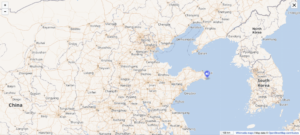

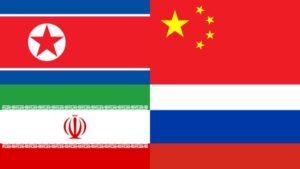
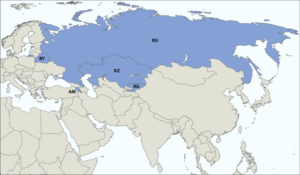


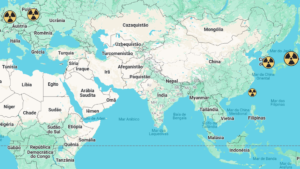



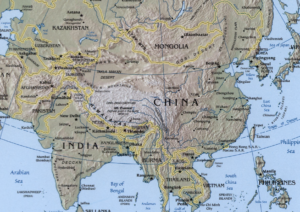
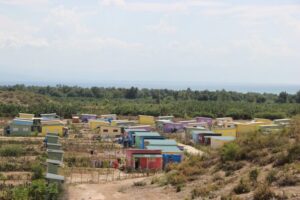

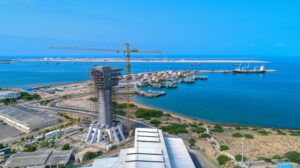









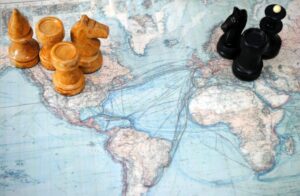

[…] Horn of Africa lies in the north-eastern part of the continent, formed by Eritrea, Djibouti, Somalia and Ethiopia. […]